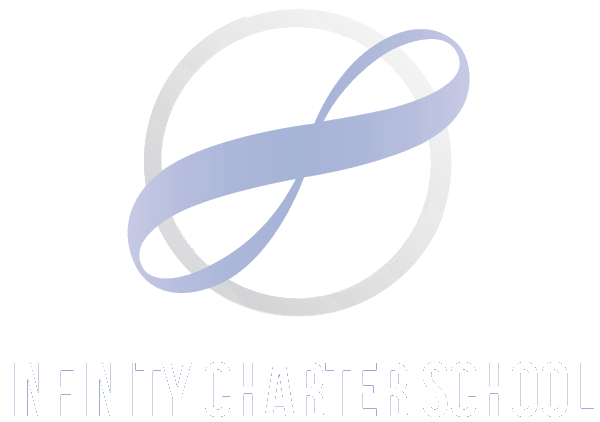Infinity Charter School
Frequently Asked Questions
Q: What is a charter school?
A: A charter school is an independent public school, custom-designed by local citizens. It is typically endorsed or “chartered” by a public agency and has more freedom and flexibility than it would through magnet status or waivers. A charter school may not charge tuition and it may not discriminate. Charter schools typically focus on a special curriculum approach, a new school organization approach or some other feature that sets them apart from regular public school offerings.
Q: What is the special focus for Infinity Charter School ?
A: The school is designed to serve the needs of intellectually and/or academically gifted children.
Q: What is the cost to attend?
A: Charter schools are free.
Q: How are charter schools funded?
A: A charter school receives tax dollars allocated for public education from the local school district for each child it serves. This is its primary source of income.
Q: Where is the school located?
A: The school is located at 5405 Locust Lane, Harrisburg , in the Central Dauphin School District . It is a former CD elementary school that has been renovated.
Q: Do I have to live in Central Dauphin School District ?
A: No. However, students who reside in the district are given first preference for spaces available.
Q: What grades does the school serve?
A: Infinity is serving K-8 students during the 2017-2018 school year.
Q: What will the class size be?
A: Currently Infinity has between 20 and 22 students per class. Class size will not exceed 22. Flexible ability grouping and use of parent volunteers allow for smaller instructional groupings throughout the school day.
Q: What make the curriculum unique?
A: The short answer is that flexible ability grouping, in addition to an enriched, accelerated, differentiated curriculum allows gifted learners to move quickly through basic material and to explore more complex material in depth.
Q: What if my child has already skipped one or more grades? How is placement decided?
A: Individual academic placement is determined by a combination of ability and age appropriateness.
Q: What special subjects are taught?
A: The school offers foreign language, art, guidance, music, and physical education at all grade levels.
Q: Do teachers hold certification in gifted education?
A: There is currently no certification for gifted education in Pennsylvania . Teachers, with graduate work or experience in gifted education, are recruited. Additional staff development in gifted education is provided.
Q: When does school start and end?
A: The school year generally follows the annual Central Dauphin school calendar, with some differences related to inservice days or parent/teacher conferences. Charters are required to have a certain number of instructional hours, not a particular number of days. Currently, the school day begins at 8:15 a.m. and ends at 3:15 p.m.
Q: What opportunities are there for parent involvement?
A: Parents are encouraged and expected to take an active role in their child’s education. Opportunities for involvement range from classroom volunteers, to fundraising, to painting the walls, to parent committees.
Q: Are there parent/teacher conferences during the school year?
A: Frequent communication between parents and teachers is a key component of this school. As part of this process, there will be four parent/teacher conferences during the school year, three of which are scheduled for 30 minutes each. The final conference is portfolio sharing with your child.
Q: Is transportation provided?
A: If your child resides in the district, the Charter Act requires the district to provide the same type of transportation that would be provided to other district students. Nonresident students shall be provided transportation under section 1361 of Public School Code. The school district of student residence must provide transportation to a charter school up to ten miles from its border.
Q: Is hot lunch provided?
A: Infinity does not currently provide hot lunch on a regular basis. However, students do have the opportunity to order pizza for lunch once a week.
Q: Is there before and after school care?
A: Not at this time.
Q: What are the admission criteria?
A: There are no specific admission criteria. The primary focus of this school is the provision of a full-time, differentiated educational program geared to the characteristics and needs of intellectually and/or academically gifted students. Parents decide whether this is a good match for their child.
Q: What happens if there are more applicants than space available?
A: According to the Charter Act, students must be selected on a random (with one exception) basis from a pool of qualified applicants meeting the established eligibility criteria and submitting the application materials by the established deadline.
Q: Are siblings given preference for admission?
A: Yes. The Charter Act states that enrollment preference may be given to siblings of students presently enrolled in the charter school.
Q: What happens if my child’s name doesn’t get selected in the lottery?
A: Your child’s name will be placed on a waiting list in the order it was selected. If there are any vacancies during the year, names will be pulled from the waiting list. At the end of the next year’s enrollment period, the school will contact you to see if you want to have your child entered in the next year’s lottery. At that time, you will be notified of any paperwork or meetings that are required.
Q: Is the school racially and economically diverse?
A: The philosophy of the school is that outstanding talents are present in children from all cultural groups, and across all economic strata. Efforts are made to recruit from all groups, however due to the lottery system required by state law, there is no way to ensure racial, ethnic or gender diversity. Currently, Infinity’s student population is 3% multicultural, 5% Asian, 6% Hispanic, 23% African-American, and 63% Caucasian, and approximately 16% of our families have been identified as low income.
Core Values
1) Education First
At Infinity, education is our primary business. Activities that seek and support educational excellence shall be given priority over those that do not. The basic role of teachers is to help children learn.
2) Quality
Beginning in Kindergarten and continuing through school, the subject of quality and how it relates to school work is discussed with students. Students, parents and teachers challenge students to do their very best.
3) Hard Work
Creating high quality work is not always easy. We are committed to making learning interesting, exciting and fun, as much as possible. However, we recognize, and want parents and students to recognize, that while learning is not always easy, it is fundamental.
4) Life-long Learning
We recognize that learning does not begin or end with school. We want students to learn skills that will allow them to continue to direct their own learning. The essence of this is independence and self-reliance .
5) Love of Learning
Children need to learn to love learning as its own reward. We encourage students to focus on internal rewards and motivations, rather than being dependent on external rewards.
6) Self-Esteem
We believe that self-esteem is built upon competence. We can, and do, praise children appropriately, but we do not engage in false praise. We actively assist and encourage children in their journey towards competency. We want them to take pride in what they do well. We also want our students to believe that they can make a difference in the world.
7) Respect
We strive to create a climate of mutual respect among students, parents, staff and community members. Students are expected to show respect to others, and can, in turn, expect to be treated with respect by others.
8) Personal Responsibility
We expect students to take personal responsibility for their own learning. We cannot teach them anything if they are determined not to learn. We also expect them to take personal responsibility for their actions and to be willing to accept the consequences.
9) Responsibility to Others
Any member of a community has some responsibilities to his neighbor. Our students have some special abilities that carry with them greater opportunities to serve. We want students to understand the contributions they can make to society and to act responsively .
10) Role Models
We have high expectations for our students. We, as parents and staff, are committed to serving as appropriate role models for your students. We need to demonstrate these values to our students, on a daily basis, through our own behavior. We cannot reasonable expect from them that which we are not willing to do ourselves.
11) Diversity
We live in a diverse society. Students need to understand and respect differences, while seeking to find common ground. Students also need to understand and evaluate different opinions and intellectual perspectives. All of this is an integral part of our curriculum.
12) Continual Improvement
We have adopted the Japanese philosophy of Kaizen or continuous improvement. We acknowledge and recognize effort; celebrate the achievement of benchmarks and milestones; and strive to get better each and every day.
|
|
 5405 Locust Lane, Harrisburg, PA 17109
5405 Locust Lane, Harrisburg, PA 17109  717-238-1880
717-238-1880  info@infinityschool.org
info@infinityschool.org


